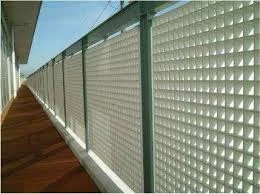
-
 Afrikaans
Afrikaans -
 Albanian
Albanian -
 Amharic
Amharic -
 Arabic
Arabic -
 Armenian
Armenian -
 Azerbaijani
Azerbaijani -
 Basque
Basque -
 Belarusian
Belarusian -
 Bengali
Bengali -
 Bosnian
Bosnian -
 Bulgarian
Bulgarian -
 Catalan
Catalan -
 Cebuano
Cebuano -
 China
China -
 China (Taiwan)
China (Taiwan) -
 Corsican
Corsican -
 Croatian
Croatian -
 Czech
Czech -
 Danish
Danish -
 Dutch
Dutch -
 English
English -
 Esperanto
Esperanto -
 Estonian
Estonian -
 Finnish
Finnish -
 French
French -
 Frisian
Frisian -
 Galician
Galician -
 Georgian
Georgian -
 German
German -
 Greek
Greek -
 Gujarati
Gujarati -
 Haitian Creole
Haitian Creole -
 hausa
hausa -
 hawaiian
hawaiian -
 Hebrew
Hebrew -
 Hindi
Hindi -
 Miao
Miao -
 Hungarian
Hungarian -
 Icelandic
Icelandic -
 igbo
igbo -
 Indonesian
Indonesian -
 irish
irish -
 Italian
Italian -
 Japanese
Japanese -
 Javanese
Javanese -
 Kannada
Kannada -
 kazakh
kazakh -
 Khmer
Khmer -
 Rwandese
Rwandese -
 Korean
Korean -
 Kurdish
Kurdish -
 Kyrgyz
Kyrgyz -
 Lao
Lao -
 Latin
Latin -
 Latvian
Latvian -
 Lithuanian
Lithuanian -
 Luxembourgish
Luxembourgish -
 Macedonian
Macedonian -
 Malgashi
Malgashi -
 Malay
Malay -
 Malayalam
Malayalam -
 Maltese
Maltese -
 Maori
Maori -
 Marathi
Marathi -
 Mongolian
Mongolian -
 Myanmar
Myanmar -
 Nepali
Nepali -
 Norwegian
Norwegian -
 Norwegian
Norwegian -
 Occitan
Occitan -
 Pashto
Pashto -
 Persian
Persian -
 Polish
Polish -
 Portuguese
Portuguese -
 Punjabi
Punjabi -
 Romanian
Romanian -
 Russian
Russian -
 Samoan
Samoan -
 Scottish Gaelic
Scottish Gaelic -
 Serbian
Serbian -
 Sesotho
Sesotho -
 Shona
Shona -
 Sindhi
Sindhi -
 Sinhala
Sinhala -
 Slovak
Slovak -
 Slovenian
Slovenian -
 Somali
Somali -
 Spanish
Spanish -
 Sundanese
Sundanese -
 Swahili
Swahili -
 Swedish
Swedish -
 Tagalog
Tagalog -
 Tajik
Tajik -
 Tamil
Tamil -
 Tatar
Tatar -
 Telugu
Telugu -
 Thai
Thai -
 Turkish
Turkish -
 Turkmen
Turkmen -
 Ukrainian
Ukrainian -
 Urdu
Urdu -
 Uighur
Uighur -
 Uzbek
Uzbek -
 Vietnamese
Vietnamese -
 Welsh
Welsh -
 Bantu
Bantu -
 Yiddish
Yiddish -
 Yoruba
Yoruba -
 Zulu
Zulu
Innovative Applications of Fiberglass in Automotive Design and Manufacturing Techniques
The Rise of Fiberglass Cars A Revolution in Automotive Design
The automotive industry has undergone several transformations since its inception, driven by technological advances and changing consumer preferences. One of the notable innovations in car manufacturing is the use of fiberglass. Initially developed as a material for various industrial applications, fiberglass has found its place in the automotive world, particularly in sports cars and custom builds. This article explores the significance of fiberglass in car manufacturing, its advantages, and its implications for the future of automobiles.
The Rise of Fiberglass Cars A Revolution in Automotive Design
One of the primary advantages of fiberglass is its strength-to-weight ratio. Fiberglass is significantly lighter than traditional materials such as steel, which means that car manufacturers can create vehicles that are both fast and fuel-efficient. In the age of rising fuel prices and environmental concerns, the push towards lighter cars is not merely about speed; it’s also about lowering emissions and enhancing the overall efficiency of vehicles. This shift has enabled manufacturers to meet increasingly stringent regulations while still delivering high-performance models.
fiberglass car

Additionally, fiberglass is highly moldable, allowing for a greater degree of design flexibility. This capability has empowered designers to create more aerodynamic and visually appealing shapes, leading to innovative car designs that attract consumers. The unique characteristics of fiberglass enable custom-build enthusiasts to experiment with different styles and functionalities, further driving the trend in personalized vehicles. With more and more drivers looking for individuality in their cars, fiberglass presents an ideal option for customization.
Moreover, fiberglass is resistant to corrosion—a significant benefit for cars exposed to various weather conditions and road salts. Unlike metal, fiberglass does not rust, which leads to reduced maintenance costs for vehicle owners. This durability makes fiberglass an appealing option for manufacturers focusing on long-term reliability and less frequent repairs. As consumers become increasingly budget-conscious, the longevity of materials used is becoming an essential consideration in car buying.
As we move towards a more sustainable future, the role of fiberglass in automotive design is likely to expand. The automotive industry is witnessing a shift towards eco-friendly practices, and the use of alternative materials like fiberglass aligns with these goals. Innovators are exploring bio-resins and recycled glass fibers, which could further reduce the environmental impact of fiberglass production. Such advancements could lead to a new wave of sustainable vehicles that do not compromise on performance or aesthetics.
In conclusion, fiberglass has revolutionized the automotive industry by offering a lightweight, durable, and versatile material that enables innovative designs and enhances vehicle performance. Its resistance to corrosion and customization capabilities make it an attractive choice for manufacturers and consumers alike. With the rising focus on sustainability, fiberglass is poised to play an even more significant role in the future of car manufacturing. As the automotive world continues to evolve, the legacy of fiberglass will undoubtedly be a key part of this journey, shaping the next generation of vehicles that are not only efficient and powerful but also environmentally responsible.
Latest news
-
High-Performance FRP Scrubber – Advanced Fiberglass Scrubber for Effective Cleaning & Stain RemovalNewsJul.04,2025
-
Fiberglass 90 Degree Elbow for Custom Tanks & High Pressure Pipes Durable and Corrosion ResistantNewsJun.24,2025
-
Exploring the Benefits of Top Hammer Drifter Rods for Enhanced Drilling PerformanceNewsJun.10,2025
-
High-Precision Fiberglass Winding Machine for GRP/FRP Pipe Production – Reliable & Efficient SolutionsNewsJun.10,2025
-
FRP Pipes & Fittings for Shipbuilding - Corrosion-Resistant & LightweightNewsJun.09,2025
-
Premium FRP Flooring Solutions Durable & Slip-ResistantNewsJun.09,2025









